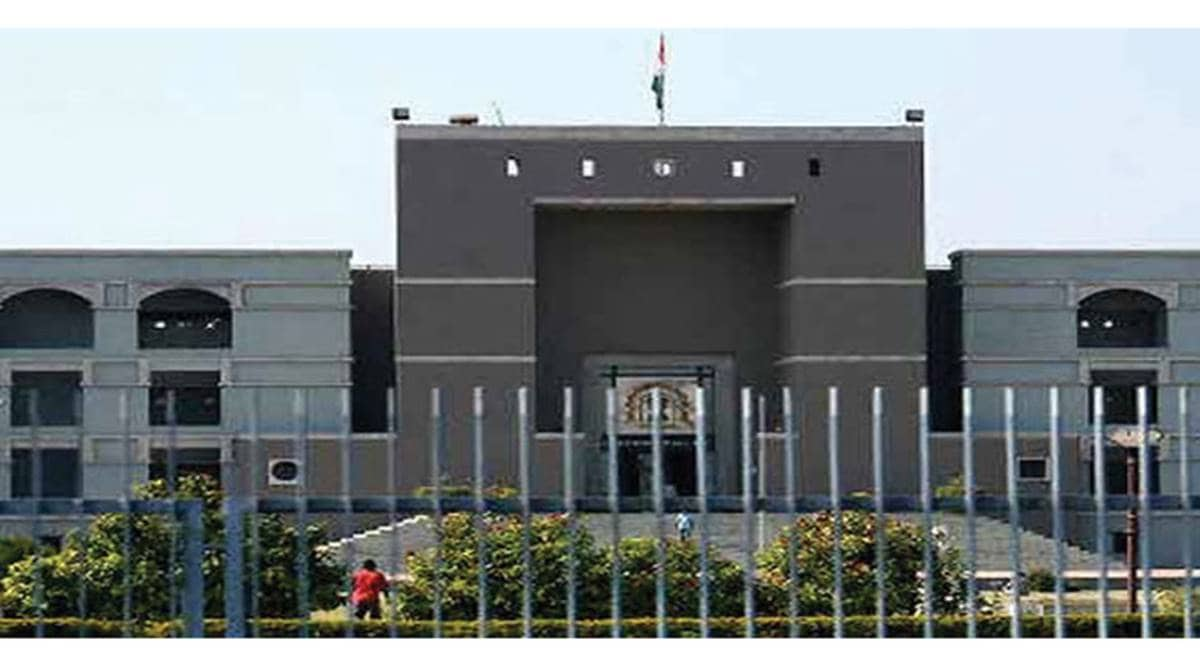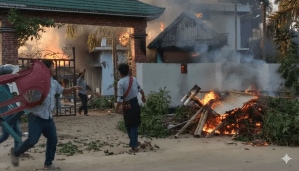Cattle menace complaints can be made by dialling 100, Gujarat tells HC
The submission came during the hearing of a contempt petition pertaining to wilful disobedience of the state and other government authorities with respect to earlier orders passed by the HC in relation to tackling cattle nuisance as well as maintaining road conditions and traffic control.
 The state government on August 24 had submitted that the Gujarat Cabinet deliberated on the issue of cattle menace and had announced that municipal corporations have been directed to put up temporary cattle pounds, at the expense of the corporation and subsequently reimbursed by the state government.
The state government on August 24 had submitted that the Gujarat Cabinet deliberated on the issue of cattle menace and had announced that municipal corporations have been directed to put up temporary cattle pounds, at the expense of the corporation and subsequently reimbursed by the state government. Taking note of a recent incident where a stray cattle attack on a pregnant woman at Vadodara, the Gujarat High Court on Thursday directed the state to place on its records “officers for being held accountable/responsible at the district levels” for cattle menace by the next date of hearing and also directed the state government to also indicate in its affidavit “as to the manner in which proposals to compensate the persons hitherto injured on account of cattle menace as there is a vicarious liability on the state along with the municipal corporations along with municipalities which cannot be shrugged off by the state or its instrumentalities.”
The court’s direction came following the hearing of a contempt petition pertaining to wilful disobedience of the state and other government authorities with respect to earlier orders passed by the HC in relation to tackling cattle nuisance as well as maintaining road conditions and traffic control. The division bench of Chief Justice Aravind Kumar and Justice AJ Shastri also added Gujarat High Court Advocates’ Association (GHAA) as a party to the litigation.
The association, in an affidavit, has suggested, that by “the law of tort”, the owner of cattle will be liable to compensate the person who has suffered injury or which has resulted in death of the person, and to this effect such owners must be identified immediately and are “required to pay ad-hoc compensation in public law remedy to the family of the victim and/or to the person who is injured.”
Meanwhile, the state government through its government pleader Manisha Lavkumar Shah, on Thursday, detailing the action taken so far for tackling the menace, submitted that grievances over cattle menace can be alerted to by citizens by dialling 100 — the police emergency number — even as it submitted that the monsoons are making construction of cattle pounds a challenge and is thus taking some time to establish such pounds. Shah further added that awareness programmes are being undertaken among stakeholders while remarking that “governance and balancing of everyone’s interests is not an easy task.”
Shah further outlined that “police authorities have identified hotspots” where cattle menace is greater and in such areas the state proposes to install CCTVs, while adding that the state’s long-term plan of action to tackle cattle menace, includes “identification of (hotspot) areas, data analysis and monitoring.”
Shah also brought to the court’s notice that with the spread of the lumpy skin disease among cattle, moving cattle out of the district of Ahmedabad has been a challenge. “Eeven when we are trying to move them (stray cattle) out of Ahmedabad, the district collectors are refusing to take them because the chances of all other cattle being infected (with lumpy skin disease) is very strong,” said Shah.
The state government on August 24 had submitted that the Gujarat Cabinet deliberated on the issue of cattle menace and had announced that municipal corporations have been directed to put up temporary cattle pounds, at the expense of the corporation and subsequently reimbursed by the state government.
The matter has been posted for further hearing on October 4.







